IRB Profiles
-
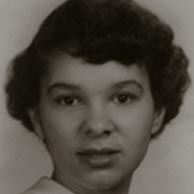
Hodges, Gertrude J. “Trudy”
Nursing pioneer
Hodges,
Gertrude J. “Trudy”

Hodges, Gertrude J. “Trudy”
Nursing pioneer
Trudy Hodges had no doubts that she should become a nurse. She knew this even as a 4- year-old. But she didn’t know exactly how she would accomplish this goal.
When she overheard someone discussing Johns Hopkins, she wrote to ask if black nursing students would be considered. The admissions office encouraged her to apply.
Throughout her years of study at Johns Hopkins, Hodges remained the only black nursing student. A special counselor was assigned to provide additional support for her. She did not socialize much with the other students and did encounter racism, but having grown up in a rural town in upstate New York, she was accustomed to being in the minority.
After graduation in 1959, Hodges became a head nurse at Johns Hopkins and, after returning to New York to earn a master’s degree, she also taught at Johns Hopkins and at the St. Agnes School of Nursing. Eventually Hodges joined the faculty of the Community College of Baltimore (now Baltimore City Community College), where she taught for 30 years. She often helped students who, like her, had dreamed of becoming nurses to achieve that goal and pursue graduate degrees.
Since retiring, Hodges has contributed to two projects that are building greater trust and collaboration between Johns Hopkins and the neighboring communities. She is an active advisory board member for Paul Laurence Dunbar Senior High School and serves on the advisory committee for the East Baltimore Development Inc.
-
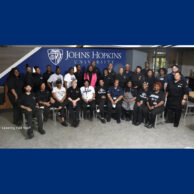
Hopkins Dining
Nourishing and Nurturing Generations
Hopkins Dining

Hopkins Dining
Nourishing and Nurturing Generations
See all Hopkins Dining locations
The more than 150 women and men who comprise the dedicated workforce of Hopkins Dining have nurtured generations of students, faculty, and staff, dishing up not only nourishing food but also plenty of encouragement and devotion to the JHU community, particularly students. “I love my job,” says Sarah Robinson, a 43-year veteran in Hopkins Dining. “I’ve loved everything I’ve done. I love the kids. We’ve had lots of fun. It’s a nice place to be and to work.”
Robinson says she has “done it all” for Hopkins Dining. “When I started, there was only Levering,” she explained, but by now she has worked in all the venues on the Homewood campus. She enjoyed cooking for seventeen years, then moved on to other positions, and is now a cashier in Nolan’s. She’s often on the job for twelve hours a day. “If people don’t show up, I fill in at the coffee station, or as a line server, or whatever needs to be done.”
Marie Wilson has filled many jobs on the Homewood campus since 1974. “I’ve been in the deli, the dish room, the stock room. I’ve worked for catering, as a line server, and now I’m a cashier. Hopkins has been good to me,” she says. Wilson wants students to feel that the university is their home away from home and enjoys engaging with them. “I treat them as if they were my own.” She likes talking with prospective students and their parents about the beautiful campus and assures them, ‘I’ll be here next year.’” Wilson appreciates the excellent health benefits Hopkins offers, as well as being part of a union.
Phyllis Prettyman began in catering and still enjoys serving at student dinners hosted by the dean of students in his home. Her primary responsibility now is working the register at the new taco station in Levering. Occasionally she will pick up a shift at Nolan’s, and students notice: “Miss Phyllis, you work everywhere!” Prettyman prizes being a team player and is impressed by how long some of her coworkers have been with Hopkins Dining. Together, she and her colleagues are welcoming and hardworking role models who demonstrate kindness and dedication every day as they provide fresh and healthy meals for all.
-
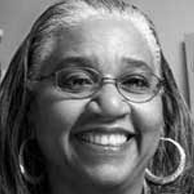
King-Hammond, Leslie
Force of art
King-Hammond,
Leslie

King-Hammond, Leslie
Force of art
Leslie King-Hammond, graduate dean emerita of Maryland Institute College of Art, stands at the center of the arts community in Baltimore and is a powerful force far beyond this city. She is chair of the board of the Reginald F. Lewis Museum of Maryland African American History and Culture and a board member of the Creative Alliance. She has served as project director for the Ford/Phillip Morris Fellowships for Artists of Color, an executive board member for the International Association of Art Critics, president of the College Art Association, a trustee of the Baltimore School for the Arts, and a trustee of the Baltimore Museum of Art. She has contributed to major exhibitions and publications for Studio Museum in Harlem, the Met Life Gallery and Columbus Museum of Art.
King-Hammond arrived in Baltimore from New York in 1969. A Horizon Fellow, she earned both her master’s and doctoral degrees from Johns Hopkins University. In 1976, she was appointed dean of graduate studies at MICA. After retirement in 2008, she was named founding director of the Center for Race and Culture at MICA, and she continues to teach art history at the school.
-
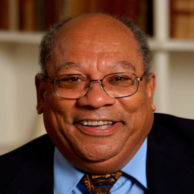
Knight, Franklin W.
Superlative scholar of Latin America
Knight,
Franklin W.

Knight, Franklin W.
Superlative scholar of Latin America
When Franklin W. Knight joined the Johns Hopkins history faculty in 1973, he discovered “an intimate community” on the Homewood campus he enjoyed. “People were very serious about the work they did. It was extremely collegial. The intellectual pursuit was up front, mainstream, and focused.” He relished the diversity in his graduate seminars on Latin American history, which drew students from medicine, public health, economics, and political science, as well as aspiring historians. “I remember having very strong differences of opinion during the seminar, and afterwards we would go to the faculty club and continue the discussions in a very tranquil way.”
A native of Jamaica, Franklin Knight earned his undergraduate degree at the University College of the West Indies–London and his graduate degrees from the University of Wisconsin in Madison. At Johns Hopkins, he became the first black faculty member to secure academic tenure. From 1998 he directed the Latin American Studies Program and between 2011 and 2014, Knight directed JHU’s Center for Africana Studies. His research centers on social, political, and cultural aspects of Latin America and the Caribbean, particularly following the eighteenth century. A highly respected scholar, Professor Knight has held fellowships from multiple foundations and research councils, and the National Endowment for the Humanities; and served as an academic analyst for public and commercial television and radio programs. He has been president of both The Historical Society and the Latin American Studies Association, served on numerous advisory councils and editorial boards, and lectured across the Americas, Europe, Australia, and Japan. The author, editor, or translator of influential books on Latin American history and culture, Dr. Knight has also written many chapters, articles, and forewords, as well as more than a hundred book reviews for professional journals.
Still, teaching remains Knight’s passion. “I have always said that what’s useful about what I’m doing in history is not the factual information I provide, but how you can use that factual information, how you can shape it to resolve a practical problem that you might have in any sphere of endeavor,” Franklin Knight explains. “I say to my students, year in and year out, that I want them to be less complacent about everything than when they came in. I want them to raise questions. I don’t presume that my students want to do history, but I presume that they want to be responsible citizens, and therefore what I want to do is to equip them to be better citizens wherever they are, and ‘better citizens’ means that they must be better informed.” Knight assumed emeritus status and joined the Academy at Johns Hopkins in 2014.
-
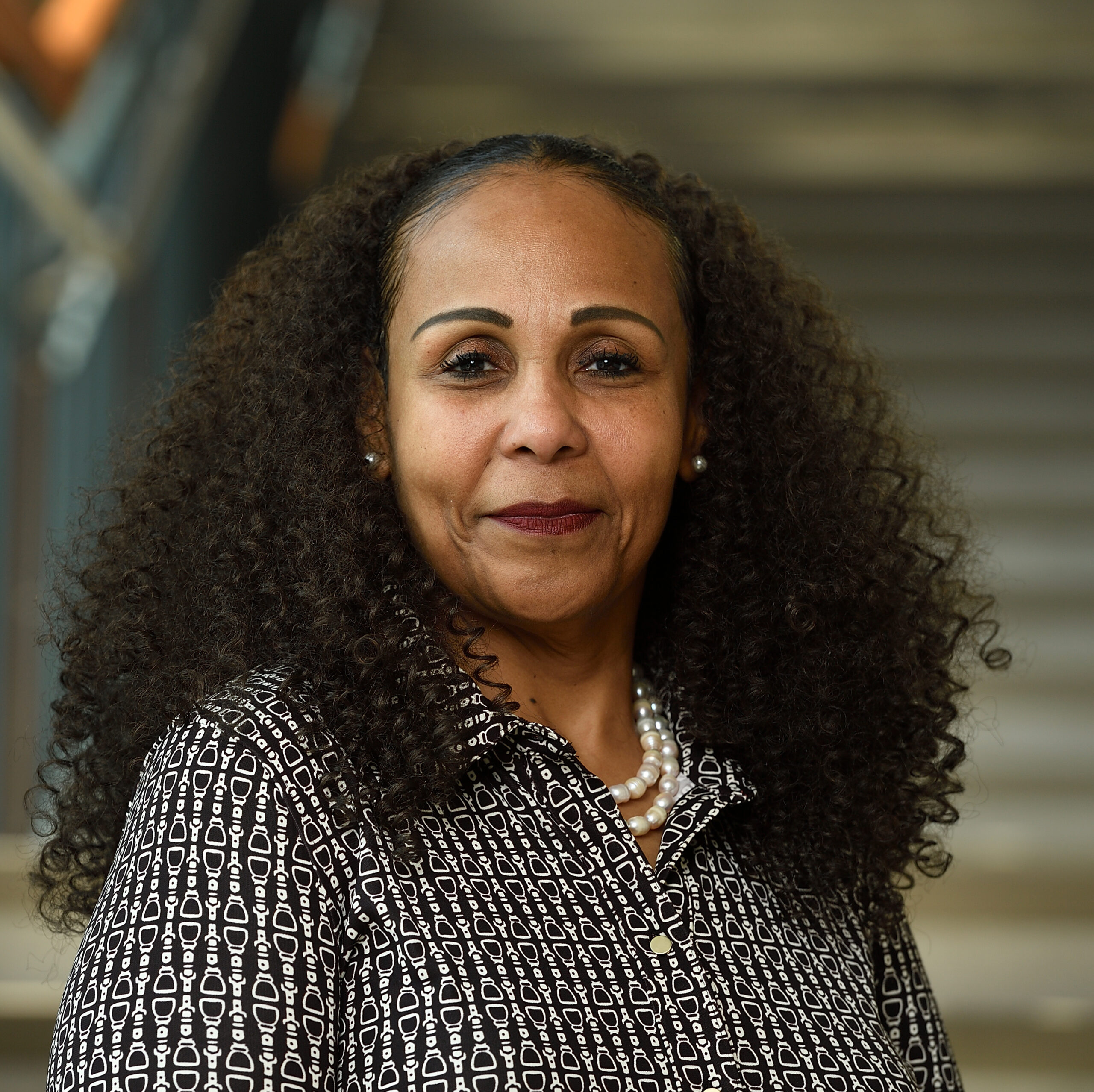
Laforest-Sharif, Regine
A Servant Leader
Laforest-Sharif,
Regine

Laforest-Sharif, Regine
A Servant Leader
Regine Laforest-Sharif was drawn to Johns Hopkins because of its esteemed Black Faculty and Staff Association (BFSA). Recalling her first BFSA meeting in 1995, she described “all of these very powerful, warm administrators who were very excited to welcome me. You could see they were committed to doing some really good work, and making sure that equity was going to be very much part of the university.” The organization included people “at all levels” and provided great networking opportunities. “Whenever I felt confused or isolated, I always found shelter in that space.” She quickly became involved, serving as membership coordinator and treasurer, then, as BFSA president in 2000–01, inaugurating the first university-wide full-day diversity conference that year, held on the East Baltimore campus.
Originally hired as a housing coordinator, Laforest-Sharif rose to associate director of Housing Operations after two decades of impeccable service. She impacted many aspects of students’ experiences on and off the Homewood campus. “I often told students and parents that we’ve done you a disservice if you leave the university setting unchanged. Our job is to offer you an opportunity to think differently, to act differently, and to learn differently. And you only get to do that one time.” Within community living, “you learn how to negotiate. How do you tell somebody that something is not okay? How do you take care of yourself? How do you manage your time?”
Laforest-Sharif recalls the position as “a humbling experience.” She developed close relationships with many students over the years, taking a group to Ghana and Haiti and partnering with the Haitian embassy. She also advised the Caribbean Student Organization for over 27 years, and still advises three student cultural groups on the Homewood campus. “Students taught me things all the time. They kept me young. I miss them.”
Accepting a new challenge in 2023, Laforest-Sharif moved to the School of Nursing in East Baltimore. “I see a lot of value in being able to develop new initiatives and new programs. I get a lot of energy from that.” In her position as director of Student Affairs, she manages and oversees all student groups, sets programming, proposes collaborative opportunities, and helps to resolve students in crisis. She’s excited to be working with a new cohort of colleagues and students. “We all have ideas and thoughts about what we think people need but it’s really different when you give people the opportunity to say what they need.”
Laforest-Sharif stresses the importance of making an impact. “Whether it’s through my church, my sorority, the work that I do in the Baltimore community, I don’t want to just do stuff, I want it to be transformative for the people who are receiving whatever it is I’m participating in.” She grew up in New York City in a hardworking Haitian immigrant family that emphasized good manners, earning your own way, and being grateful. “The spirit in our home was always about empowering and serving other people, and that has very much informed who I am.” In Baltimore, she belongs to the oldest Black Catholic Church in the United States—St. Francis Xavier—and serves as president of the board of directors for the Pastorate, helping her church to join forces with two others. She is viewed as “a servant leader,” and acknowledges the efforts are a lot of work but, she says, “I get a hundredfold back for the work I’ve put in.”
-
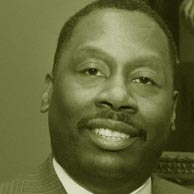
LaVeist, Thomas A.
Health care gap closer
LaVeist,
Thomas A.

LaVeist, Thomas A.
Health care gap closer
Identifying a problem is only the first step. On the issue of health care gaps, Thomas A. LaVeist has devoted his career to the next steps: why those gaps exist and how to close them. LaVeist is the director of the Hopkins Center for Health Disparities Solutions and the William C. and Nancy F. Richardson Professor in Health Policy at the Johns Hopkins Bloomberg School of Public Health.
The recipient of major awards from the National Institutes of Health and the U.S. Department of Health and Human Services, LaVeist focuses on the areas of U.S. health and social policy; the role of race in health research; social factors contributing to mortality, longevity and life expectancy; quantitative and demographic analysis and access; and the utilization of health services. He earned a doctorate in medical sociology from the University of Michigan and completed a postdoctoral fellowship in public health at the University of Michigan’s School of Public Health.
At Johns Hopkins, he teaches courses in health policy, minority health, cultural competency and racial disparities in health. A frequent lecturer at other universities and professional conferences, he consults often with federal agencies and health care organizations. He has written five books, including two regarding minority health, Race, Ethnicity, and Health: A Public Health Reader and Minority Populations and Health: An Introduction to Health Disparities in the U.S. His research has been funded by the National Institutes of Health, the National Center on Minority Health and Health Disparities, the Centers for Disease Control and Prevention, and numerous national foundations.
-
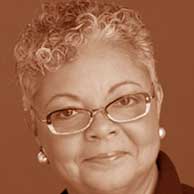
Lewis-Hall, Freda C.
Global Health Authority
Lewis-Hall,
Freda C.

Lewis-Hall, Freda C.
Global Health Authority
When Freda C. Lewis-Hall speaks about healthcare which she does often-in corporate boardrooms, at conferences, on national boards and even on popular television shows, she addresses her audiences with the ease and authority of a physician who has risen to the top of her profession and who approaches medicine as a clinician, researcher, strategist, educator, executive and communicator.
After earning an undergraduate degree at Johns Hopkins, Lewis-Hall trained as a psychiatrist and worked in academia, medical research and frontline patient care. Her career path has included serving as vice chair of the Department of Psychiatry at Howard University College of Medicine and leading research projects for the National Institutes of Health.
Work for major global pharmaceutical companies including Vertex, Bristol-Myers Squibb and Eli Lilly led Lewis-Hall to Pfizer, Inc. where she now serves as executive vice president and chief medical officer. At Pfizer, she directs worldwide regulatory and safety strategy, operations and compliance; external medical affairs and communication; clinical trials excellence; quality assurance and the Center for Medical Advancement.
Lewis-Hall is a fellow of the American Academy of Psychiatry and participates on a host of boards including Harvard School of Medicine Board of Fellows; the Institute of Medicine-s Forum on Drug Discovery, Development and Translation; New York Academy of Medicine; the Society of Women-s Health Research; Save the Children and the Foundation of the National Institutes of Health. The Obama administration appointed her to its Inaugural Board of Governors for the Patient-Centered Outcomes Research Institute. Lewis-Hall has been honored in recent years as one of “Savoy” magazine-s Top Influential Women in Corporate America and the Healthcare Business Women-s Association-s Woman of the Year.
Writing about her book, a peer described Lewis-Hall as a “luminescent leader” and noted that she “has enjoyed great success throughout her career, advancing to senior-most positions within the companies where she has worked. However, these are not the achievements that define her. Rather, her passion for healing and building people is what is most outstanding.”
-
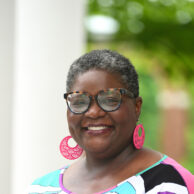
Lunn, Tameika
District Court J - 2024 Inductee
Lunn,
Tameika

Lunn, Tameika
District Court J - 2024 Inductee
When Tameika Lunn graduated with dual degrees from Johns Hopkins University and the Peabody Conservatory of Music in 1999, her family’s story was featured in The Baltimore Sun. Born to teenage parents in East Baltimore who struggled to make ends meet, Lunn had defied all odds to earn her two degrees.
Now facing a crossroads between music and law, Lunn chose the latter, leading to a career dedicated to serving her home city of Baltimore. In 2022, then-Governor Larry Hogan appointed Lunn as an associate judge in the District Court of Baltimore City. She now serves as the presiding Judge of the Baltimore City Adult Recovery Court in the District Court (ARC).
Initially, Lunn was concerned about the emotional toll of serving in the ARC, which provides drug and alcohol treatment, mental health services, and other resources to residents charged with misdemeanor crimes. “I thought it might hit too close to home,” says Lunn, who lost her brother, David Lunn Jr., to a fentanyl overdose in 2019 and whose father, David Lunn Sr., is a 30-year recovering addict.
But over a year into the job, Lunn says she “has not regretted a single day”—and has found that her personal experience only benefits her work. “I realized the recovery court needed a judge with a true understanding of addiction,” she says. “Not only someone who could be firm … but also someone who, in their heart of hearts, understands how addiction affects people and their families.”
Lunn emphasizes that addiction “has no face, does not discriminate and can happen to anyone.” Her brother David was a Division I college athlete who graduated and traveled overseas playing professional basketball.
“I tell my clients … I know this is hard, I know this is scary, but come in and be honest and we’ll get through it,” she says. “I share my story, and it helps.”
Growing up in Baltimore, Lunn attended Harford Heights Gifted and Talented Education Center and the Bryn Mawr School for Girls, which nurtured her talents in singing and classical music. Performing in the city, she found a mentor in Judge Bonita Dancy of the Circuit Court of Baltimore City, who introduced Lunn to “a circle of powerful Black women judges and lawyers who really impressed me,” she says.
As a student at Johns Hopkins, Lunn enjoyed “literally the best of both worlds,” pursuing a degree in voice performance with an opera certificate at Peabody while earning a history degree on the Homewood campus. She next studied law at George Washington University, where she served as a student attorney for domestic violence victims and participated in the Black Law Students Association.
Lunn completed her judicial clerkship with Judge Dancy before working as a civil and insurance defense attorney for firms in D.C. and Baltimore. In 2011, she was appointed as an administrative law judge in the Maryland Office of Administrative Hearings.
Though she set her stakes in a legal career, Lunn, a mother of three, also remains passionate about music. “I wake up to music and go to sleep to music,” she says. “And my kids are very musical, so I get to experience it through them.”
-
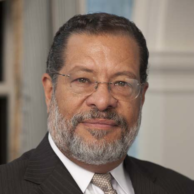
March, Erich
Civic-Minded Undertaker
March,
Erich

March, Erich
Civic-Minded Undertaker
The year was 1970. Erich March was a freshman at Johns Hopkins. The country was nearing the end of the Vietnam War. The university had just begun to admit women. Change was all around. Still, March was struck by the lack of diversity at the college he chose to attend. Despite all the changes underway around the nation, the institution he chose to further his education seemed back then to be stuck in time.
March was accustomed to being around African Americans as a native of Baltimore. His family owns the prominent March Funeral Homes, a mainstay of the city’s black community for more than 50 years. Suddenly, he was in a “lily white” environment. As March tells it, there weren’t many black undergraduates and even fewer graduate students at JHU. He can’t recall seeing any black faculty either. But March didn’t let that hold him back. He was there to get his education, which he would use to help run his family’s business and give back to the community. When he wasn’t in class or studying, March hung out with the few black students on campus or he worked with his father in the funeral home.
After graduating from JHU in 1974 with a degree in behavioral science, March returned home to help his father run the family business. It was during this time that his civic mind kicked in. With the riots following the assassination of Martin Luther King Jr. over, March wanted to help the city return to normal. One way he and his family did that was to keep the family’s anchor funeral home on East North Avenue, a section of the city that was ravaged by the riots. Other businesses had left the area or the city in general, but the March family insisted on staying and even expanding. Today, the company operates seven funeral homes – three in Baltimore, one each in the District of Columbia, Suitland and Laurel, and one in Richmond, Virginia. The family also operates King Memorial Park Cemetery in Randallstown, which March says is the largest African American cemetery on the East Coast. March is the president of the cemetery.
Several years ago, March and his then wife, Michele Speaks-March, opened Apples and Oranges Fresh Market on the corner of North Avenue and Broadway as a way of providing healthy food to underserved communities in the city. March, the vice president and chief operating officer of the family business, said through the funeral homes, he sees the toll that unhealthy diets were taking on the black community. “Potato chips and soda. I see obesity and other diseases. I see it in my embalming room.” Sadly, the store didn’t make it. Last year, it closed its doors. “We couldn’t crack the addiction to fried food and carryout. Grease and salt.”
March, who is also an accomplished artist, and his family, are still active in the community. They proudly give scholarships to the two historically black secondary schools in the city – Paul Laurence Dunbar and Frederick Douglass high schools. And they plan to keep their anchor funeral home on East North Avenue where March sees it as part of the revitalization of the historic corridor. “This is my home. How can I not be involved?”
-
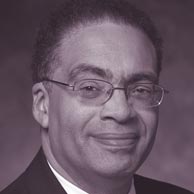
McCrary, Victor
Technology innovator
McCrary,
Victor

McCrary, Victor
Technology innovator
Victor McCrary, Science and Technology Business Area executive at the Johns Hopkins University Applied Physics Laboratory, was named Scientist of the Year at the 2011 Black Engineer of the Year national conference. In nominating him for the award, Bharat Doshi, head of the Laboratory’s Milton Eisenhower Research Center, wrote, “Dr. McCrary has made outstanding technical and managerial contributions to vital programs for the government. In addition, he has been actively promoting STEM [science, technology, engineering, and mathematics] education among minorities and is a spokesman for the cause nationally.”
In 2000, McCrary received the Commerce Department’s Gold Medal for the development of global standards for electronic books, which paved the commercialization path for today’s e-book readers.
An APL staff member since 2003, McCrary oversees a $10 million internal research portfolio and evaluates research and development projects that fit APL’s strategic objectives. He also maintains relationships within the Defense Advanced Research Projects Agency and has fostered relationships with national and international scientific organizations, including the American Chemical Society, to increase APL’s global presence.
McCrary earned an executive master of science and engineering degree from the Wharton School of Business and the Graduate School of Engineering, University of Pennsylvania, and a doctorate in physical chemistry from Howard University.
-
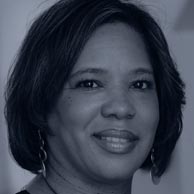
McDonald, Katrina Bell
Answer seeker in black and white
McDonald,
Katrina Bell

McDonald, Katrina Bell
Answer seeker in black and white
A sociologist who joined the Johns Hopkins faculty in 1994, Katrina Bell McDonald devotes her research to studying challenges facing black women, families and children. With colleague Caitlin Cross-Barnet, she is examining the differences of marriage among native blacks, black Africans and blacks of Caribbean descent, including the impact of religion, concepts of “traditional marriage” and the stronger earning power of many black women. Her book, Embracing Sisterhood: Class, Identity, and Contemporary Black Women, was published in 2007. Based on interviews with 88 black women of all ages, it explores how class and social background impact “black sisterhood.”
McDonald’s earlier research delved into such issues as activism among middle-class black women, barriers to kin support for urban black teen mothers and downward residential mobility among disadvantaged black women, as well as how life and educational outcomes are affected by race.
McDonald, a former associate dean of multicultural affairs, is an associate professor and an associate of the Hopkins Population Center and the Center for Africana Studies. She has been actively involved in shaping the university, through the development of new courses and initiatives, including the Center for Africana Studies.
-
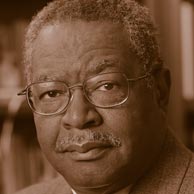
Miles, Douglas L.
Perpetual Activist
Miles,
Douglas L.

Miles, Douglas L.
Perpetual Activist
Bishop Douglas Miles serves as a prominent community and civil rights leader in Baltimore. He pastors at Koinonia Baptist Church and is a co-chair of the advocacy group Baltimoreans United in Leadership Development (BUILD).
Miles was a student at Hopkins in the midst of the turbulence and change of the 1960s, when black students at Johns Hopkins University sought to strengthen their unity and identity. By 1966, when Baltimore native Douglas Miles enrolled as an undergraduate student at Johns Hopkins, he had already witnessed the Montgomery bus boycott and the integration of Little Rock’s schools, and had heard the Rev. Martin Luther King Jr. share his dream for racial justice at the March on Washington.
Shaped by that history, Miles, who received his degree in 1970, is a recognized fighter for social justice, particularly in Baltimore. Miles received an honorary degree from Hopkins in 2018 and over the years has been a key partner in university Baltimore-based initiatives. Bishop Miles died in 2021.
-
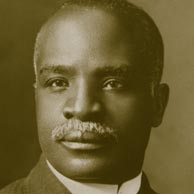
Miller, Kelly
Role model for future heroes
Miller,
Kelly

Miller, Kelly
Role model for future heroes
With a train ticket in hand and dreams in mind, Kelly Miller headed north from South Carolina in 1880 and into a life as a successful mathematician, college dean, author and education advocate. Along the way, he became Johns Hopkins University’s first black student. Born in 1863 to a free man and a slave woman, Miller drew inspiration from what he saw as his own “band of heroes,” northern teachers who had come south to teach black children after the Civil War. A scholarship allowed Miller to attend Howard University, which in turn led to a part-time job with prominent mathematician Simon Newcomb.
After Newcomb became a Johns Hopkins faculty member, Miller sought his assistance in pursuing graduate studies at the university. His application to graduate school in 1887 prompted the college president and trustees to consider the founder’s Quaker background and his commitment to a hospital and university open to all. Miller’s application served as a mirror, forcing university leadership to confront their values and principles, and though there would be many years between Miller and the next black student, Miller’s admission helped open the door for all students of color at Johns Hopkins.
Although financial circumstances prevented Miller from completing a JHU degree, he returned to Howard, earned a master’s degree and a law degree, and built an illustrious career. Never forgetting his “band of heroes,” Miller himself became one, a tireless supporter of quality education for blacks. He died in 1939.
-

Moore, Westley Watende Omari (Wes)
First Black Governor of Maryland, "Author of his own success", Anti-Poverty Philanthropist
Moore,
Westley Watende Omari (Wes)

Moore, Westley Watende Omari (Wes)
First Black Governor of Maryland, "Author of his own success", Anti-Poverty Philanthropist
Wes Moore is the 63rd Governor of the state of Maryland. He is Maryland’s first Black Governor in the state’s 246-year history, and is just the third African American elected Governor in the history of the United States.
Born in Takoma Park, Maryland, on Oct. 15, 1978, to Joy and Westley Moore, Moore’s life took a tragic turn when his father died of a rare, but treatable virus when he was just three years old. After his father’s death, his family moved to the Bronx to live with Moore’s grandparents before returning to Maryland at age 14.
Moore is a proud graduate of Valley Forge Military Academy and College, where he received an Associate’s degree in 1998, and was commissioned as a second lieutenant in the U.S. Army. Afterward, he went on to earn his Bachelor’s in international relations and economics at Johns Hopkins University in Baltimore, where he graduated Phi Beta Kappa.
While at Johns Hopkins, Moore interned in the office of former Baltimore Mayor Kurt Schmoke. Moore was the first Black Rhodes Scholar in the history of Johns Hopkins University. As A Rhodes Scholar, he earned a Master’s in international relations from Wolfson College at Oxford.
In 2005, Moore deployed to Afghanistan as a captain with the 82nd Airborne Division, leading soldiers in combat. Immediately upon returning home, Moore served as a White House Fellow, advising on issues of national security and international relations.
In 2010, Moore wrote “The Other Wes Moore,” a story about the fragile nature of opportunity in America, which became a perennial New York Times bestseller. He went on to write other best-selling books that reflect on issues of race, equity, and opportunity, including his latest book “Five Days,” which tells the story of Baltimore in the days that followed the death of Freddie Gray in 2015.
Moore built and launched a Baltimore-based business called BridgeEdU, which reinvented freshman year of college for underserved students to increase their likelihood of long-term success. BridgeEdu was acquired by the Brooklyn-based student financial success platform, Edquity, in 2018.
It was Moore’s commitment to taking on our toughest challenges that brought him to the Robin Hood Foundation, where he served for four years as CEO. During his tenure, the Robin Hood Foundation distributed over $600 million toward lifting families out of poverty, including here in Maryland.
While the Robin Hood Foundation is headquartered in New York City, Wes and his family never moved from their home in Baltimore.
Moore has also worked in finance with Deutsche Bank in London and with Citigroup in New York.
-
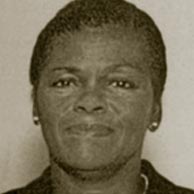
Moore-Duggan, Toni
Champion of Change—Black Faculty and Staff Association Founder
Moore-Duggan,
Toni

Moore-Duggan, Toni
Champion of Change—Black Faculty and Staff Association Founder
The Black Faculty and Staff Association (BFSA) came together, as so many advocacy groups do, over lunch and a conversation. Lunch was at the Polo Grill, then a restaurant across from Homewood Field, and the people who had gathered to talk were black senior staff members concerned about the lack of support for people of color at Johns Hopkins.
Toni Moore-Duggan, one of the participants, recalled how that lunch and subsequent discussions among the staff members led to their decision in 1995 to establish the BFSA.
“After graduating from Johns Hopkins and while working there, it became evident that there was no voice or forum for black people having difficulties here,” said Moore-Duggan, a certified nurse practitioner who worked at the institution for years.
At first, Moore-Duggan said, she and the other staff members were not sure if anyone would buy into efforts to create a forum for people of color, but they did. Seventeen years later, the group is not only going
strong but has expanded its mission: to help foster a culture of collaboration by promoting and enhancing the identity and professional welfare and growth of faculty, staff and students through collaborations, community service, education, research and cultural activities. The BFSA has also charged itself with being a crucial resource for the continued success of Johns Hopkins through the development and cultivation of relationships with key leaders of the institution.
Toni Moore-Duggan is a certified nurse practitioner who worked at Johns Hopkins Hospital in HIV/AIDS vaccine research. She also worked in the trauma unit of the hospital’s emergency room and at the Student Health and Wellness Center. After leaving Johns Hopkins, Moore-Duggan worked extensively with individuals in and leaving the prison system, as well as those struggling with substance abuse and living with mental illness. In her present position, she administers clinical services for Mosaic Integrated Health, a program based at Mosaic Community Services Inc., in Baltimore.
-
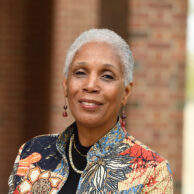
Morris, Sharon
Curator of Black Excellence
Morris,
Sharon

Morris, Sharon
Curator of Black Excellence
Native Baltimorean and librarian Sharon Morris joined Johns Hopkins in 1992 and gravitated to the Black Faculty and Staff Association soon after it formed. She embraced its mission to advance and improve the situation for people of color at the university, encouraging them to use their skills to accomplish goals with impact. “It’s a group of people who really want to see change and work for it,” Morris asserts. “My active participation in the BFSA, collaborating closely with like-minded peers, was a factor in my remaining at Hopkins.”
Beyond her professional responsibilities at the Sheridan Libraries, Morris has held numerous positions and offices in the BFSA. Perhaps her most outstanding contribution has been initiating, steering, and sustaining efforts that evolved into The Indispensable Role of Blacks at Johns Hopkins. The project began in 2003 when the Black Student Union asked a colleague of Morris’s how the Eisenhower library was celebrating Black History month. Morris brainstormed and worked with others to recruit faculty and staff to participate in a multi-year oral history project called the History of African Americans at Johns Hopkins where undergraduate students recorded and transcribed for academic credit interviews with important Black alumni, faculty, and staff members. Morris notes that the original purpose was “to bring to the university’s attention these talented and sometimes overlooked individuals, to know there was this depth of talent in Black faces.”
The original website demonstrated that greater visibility of the successes of Black members of the Hopkins community could help with student, faculty, and staff recruitment and retention. With encouragement and support from BFSA presidents and University President Ron Daniels, Morris chaired hard-working committees that produced traveling exhibit panels featuring photographs of individuals and groups whose stories offer insight into the achievements of African Americans associated with Johns Hopkins University and Medicine. “Indispensable was the term we decided best described what we were trying to do,” Morris remembers, recounting how the title Indispensable Role of Blacks at Johns Hopkins was chosen. The exhibit panels are on display on several Hopkins campuses, vividly illustrating the excellence to which Black people aspire that the wider culture often works hard to deny.
Before her retirement in 2022, Morris was director of the Washington, DC, Regional Libraries for Johns Hopkins, delivering services, providing research support, designing and teaching library instruction and research skills for faculty and students at three off-campus locations, as well as online graduate students. Under her leadership, one of her projects, Avoiding Plagiarism, was adopted as a required learning module for students in several schools. In her professional life, Morris also saw the need and helped establish an informal network of Black librarians in Maryland. The group is collaborating to form statewide an official Black caucus within the ranks of the Maryland Library Association, with Morris serving as its inaugural president. “I remain involved in highlighting the role and value of Black accomplishments,” she notes, perhaps proving that she is, herself, indispensable.